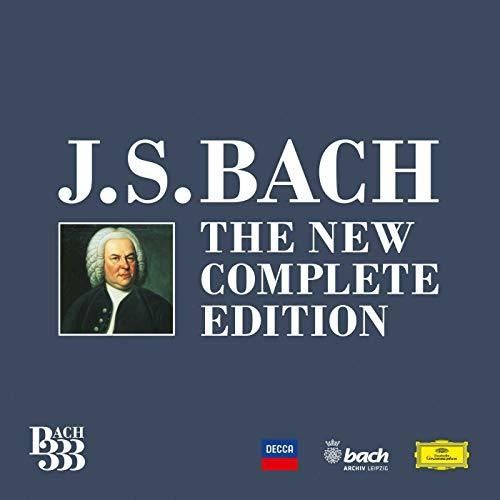- シーンから探す
-
贈る相手から探す
- 彼氏
- 彼女
- 男友達
- 女友達
- 夫・旦那
- 妻・奥さん
- お父さん・父
- お母さん・母
- 両親
- おじいちゃん・祖父
- おばあちゃん・祖母
- 女性
- 男性・メンズ
- 妊婦
- 同僚
- 同僚(男)
- 同僚(女)
- 上司(男)
- 上司(女)
- 部下
- ビジネスパートナー・取引先
- 夫婦
- カップル
- 親友
- 女の子
- 子供
- 男の子
- 赤ちゃん・ベビー
- 乳幼児
- 1歳の誕生日プレゼント
- 2歳の誕生日プレゼント
- 3歳の誕生日プレゼント
- 4歳の誕生日プレゼント
- 5歳の誕生日プレゼント
- 6歳の誕生日プレゼント
- 7歳の誕生日プレゼント
- 8歳の誕生日プレゼント
- 9歳の誕生日プレゼント
- 10歳の誕生日プレゼント
- 18歳の誕生日プレゼント
- 19歳の誕生日プレゼント
- 20歳の誕生日プレゼント
- 21歳の誕生日プレゼント
- 22歳の誕生日プレゼント
- 25歳の誕生日プレゼント
- 26歳の誕生日プレゼント
- 30歳の誕生日プレゼント
- 40歳の誕生日プレゼント
- 50歳の誕生日プレゼント
- 60歳の誕生日プレゼント
- 70歳の誕生日プレゼント
- 80歳の誕生日プレゼント
- 88歳の誕生日プレゼント
- 90歳の誕生日プレゼント
-
カテゴリから探す
- 名入れギフト
- 記念品
- 文房具
- 花
- ビューティー
- こだわりグルメ
- ジュース・ドリンク
- お酒
- 絶品スイーツ
- ケーキ
- お菓子
- プリン
- フルーツギフト
- リラックスグッズ
- アロマグッズ
- コスメ
- デパコス
- インテリア
- キッチン・食器
- グラス
- 家電
- ファッション
- アクセサリー
- バッグ・ファッション小物
- ブランド腕時計(メンズ)
- ブランド腕時計(レディース)
- ベビーグッズ
- キッズ・マタニティ
- カタログギフト
- 体験ギフト
- 旅行・チケット
- ダレスグギフト
- ペット・ペットグッズ
- 面白い
- 大人向けのプレゼント
- 贅沢なプレゼント
- その他ギフト
- プレゼント交換
- 絆ギフト券プロジェクト
- リモート接待・5000円以下
- リモート接待・8000円以下
- リモート接待・10000円以下
- リモート接待・10000円以上
- おまとめ注文・法人のお客様
格安販売の【輸入盤CD】Hans Schmidt-Isserstedt / Schmidt-Isserstedt Edition Vol 1 (Box)【K2023/9/29発売】|あめりかん・ぱい
-
商品説明・詳細
-
送料・お届け
商品情報
残り 1 点 12,084円
(167 ポイント還元!)
翌日お届け可(営業日のみ) ※一部地域を除く
お届け日: 08月17日〜指定可 (明日12:00のご注文まで)
-
ラッピング
対応決済方法
- クレジットカード
-

- コンビニ前払い決済
-

- 代金引換
- 商品到着と引き換えにお支払いいただけます。 (送料を含む合計金額が¥299,000 まで対応可能)
- ペイジー前払い決済(ATM/ネットバンキング)
-
以下の金融機関のATM/ネットバンクからお支払い頂けます
みずほ銀行 、 三菱UFJ銀行 、 三井住友銀行
りそな銀行 、ゆうちょ銀行、各地方銀行 - Amazon Pay(Amazonアカウントでお支払い)
-



![【ポイントアップ中!】【中古】ムソルグスキー:歌劇「ボリス・ゴドゥノフ」(映画版) [DVD]|アトリエ絵利奈](https://tshop.r10s.jp/atorieerina/cabinet/20220259-1/b00005qcjg.jpg)





![【送料無料】エラート録音全集(64CD)【輸入盤】▼/ジョン・エリオット・ガーディナー[CD]【返品種別A】|Joshin web CD/DVD店](https://tshop.r10s.jp/joshin-cddvd/cabinet/414/5419-720551.jpg)






![■TAIYO 油圧シリンダ 100H2R1EB100BB100ABAH2YK(8296705)[法人・事業所限定][外直送元]:ファーストFACTORY](https://tshop.r10s.jp/first34/cabinet/8296/trusco-8296705.jpg)


![まとめ得 【20個セット】 カシオ計算機 プリンター電卓用インクリボン 赤黒 RB-02-AX20 x [2個] /l](https://auctions.c.yimg.jp/images.auctions.yahoo.co.jp/image/dr000/auc0412/users/7eae660e0d029c1df7c57a91126f0f923476bc48/i-img500x500-1701923952znx3os141596.jpg)







発売日: 2023/9/29
輸入盤AU
レーベル: Eloquence Australia
収録曲: 1.1 Beethoven: Symphonies Nos. 1 ; 2
2.1 Beethoven: Symphony No. 3 'Eroica'
3.1 Beethoven: Symphony No. 4
3.2 Beethoven: Overture 'Die Weihe Des Hauses'
4.1 Beethoven: Symphonies Nos. 5 ; 8
5.1 Beethoven: Symphony No. 6 'Pastoral'
5.2 Beethoven: Overture 'Egmont'
6.1 Beethoven: Symphony No. 7
6.2 Beethoven: Overture 'Leonore No. 3'
7.1 Beethoven: Symphony No. 9 'Choral'
8.1 Beethoven: Piano Concertos Nos. 1 ; 2
9.1 Beethoven: Piano Concertos Nos. 3 ; 4
10.1 Beethoven: Piano Concerto No. 5 'Emperor'
11.1 Mozart: Piano Concertos Nos. 20 ; 6
12.1 Tchaikovsky: Symphony No. 5
13.1 Dvorak: Symphony No. 7
14.1 Dvorak: 4 Slavonic Dances
14.2 Brahms: 7 Hungarian Dances
コメント:The two stereo Beethoven cycles, those of the Symphonies (1965-70) and the Piano Concertos (with Wilhelm Backhaus, 1958-59), form the core of this edition of the complete Decca recordings of Hans Schmidt-Isserstedt (1900-1973). It is distinguished by the Wiener Philharmoniker's unique transparency of sound allied to a firm pulse and rhythmic drive which characterized Schmidt-Isserstedt's conducting. Several of the recordings were produced by Erik Smith, the conductor's son. Though it appears that he never stood in front of the Vienna Philharmonic in a concert, Hans Schmidt-Isserstedt achieved a remarkable rapport with a famously headstrong group of musicians when he conducted them in two stereo Beethoven cycles for Decca. In 1958-59 they recorded the piano concertos with Wilhelm Backhaus, as a stereo remake for the pianist's mono Decca cycle with the Vienna Philharmonic and Clemens Krauss. Backhaus was in his late 70s by then, conveying a lifetime's wisdom through his fingers while playing with apparently undimmed vitality. The Decca producer for the concertos was the conductor's son, Erik Smith, and a familial sense of mutual respect and understanding may be one reason for the success of the symphony cycle made between 1965 and 1970. Schmidt-Isserstedt harnesses the unique transparency of the Vienna Philharmonic sound with the firm pulse and rhythmic drive which had always distinguished his conducting. The set has rarely left the catalogue since it was issued, because it's virtues have never gone out of fashion. Schmidt-Isserstedt's first recordings for Decca were made in the early 1950s, as founder-conductor of Hamburg Radio Symphony Orchestra, now known as the NDR Elbphilharmonie Orchestra. The ensemble began life after the war as a cultural project nurtured and supported by the British, and under Schmidt-Isserstedt's dedicated coaching it quickly became one of the most admired orchestras Europe. Their recordings of Dvorak's Seventh and Tchaikovsky's Fifth symphonies were made in state-of-the-art Decca mono sound, produced by John Culshaw. As the reputation of the NDR orchestra spread internationally during the 1960s, so did that of it's conductor, who became a welcome and familiar presence in front of the London orchestras. He exerts gentle and sovereign authority over the London Symphony Orchestra on a 1967 album of Mozart concertos in partnership with Vladimir Ashkenazy. This Eloquence set is issued with original covers and a new essay by Peter Quantrill on Hans Schmidt-Isserstedt and his Decca legacy.
【輸入盤CD】Hans Schmidt-Isserstedt / Schmidt-Isserstedt Edition Vol 1 (Box)【K2023/9/29発売】|あめりかん・ぱい
【送料無料】 【中古】 Schumann シューマン / Comp.lieder: F-dieskau E.mathisvarady Schreier Eschenbach 【CD】|HMV&BOOKS online 1号店
【送料無料】[枚数限定][限定盤]コンプリート・コロンビア・アルバム・コレクション【輸入盤】▼/ズービン・メータ[CD+DVD]【返品種別A】|Joshin web CD/DVD店
【輸入盤CD】Romeros / Mercury Masters (Box)【K2023/12/1発売】(ロメロズ)|あめりかん・ぱい
ヴィルヘルム・フルトヴェングラー&ベルリン・フィル 帝国放送局(RRG)アーカイヴ 1939-45(22SACD) 【SACD】|HMV&BOOKS online 1号店
DVD 中学生の音楽鑑賞 14/《器楽編》 全学年共通【2】(NBS-834/文部科学省学習指導要領準拠/令和3年度改訂版/教育芸術社教科書準拠)|楽譜ネッツ
輸入盤 VARIOUS / MOZART : COMPLETE EDITION [170CD]|ぐるぐる王国FS 店
【中古】 Verdi ベルディ / Verdi Edition-the Complete Operas, Etc 【CD】|HMV&BOOKS online 1号店
【送料無料】 【中古】 C.davis: Sir Colin Davis-the Rca Legacy 【CD】|HMV&BOOKS online 1号店
CD / 小菅優 / ベートーヴェン:ピアノ・ソナタ全集 (ハイブリッドCD) (ライナーノーツ/紙ジャケット) (完全生産限定盤) / SICC-19010|サプライズ2
【中古】 Vladimir Horowitz: Live At Carnegie Hall 【CD】|HMV&BOOKS online 1号店
【中古】輸入クラシックCD WILHELM FURTWANGLER:FURTWANGLER THE LEGACY(再生産版)[輸入盤]|ネットショップ駿河屋 店
【送料無料】 【中古】 Brahms ブラームス / Symphonie No.4 / Wiener Philharmoniker / Carlos 【CD】|HMV&BOOKS online 1号店